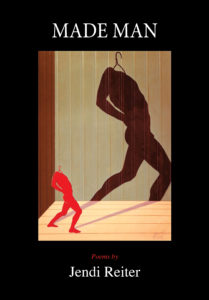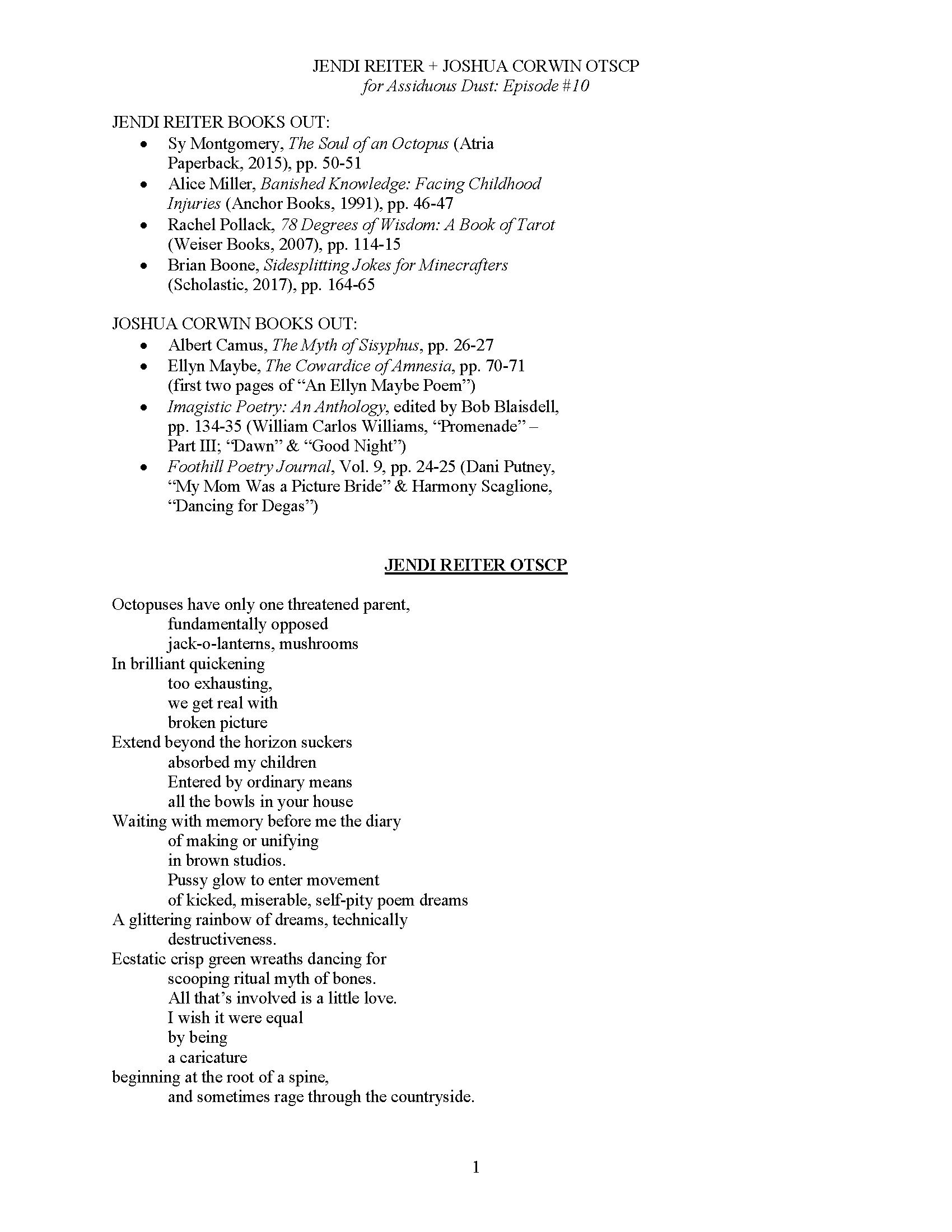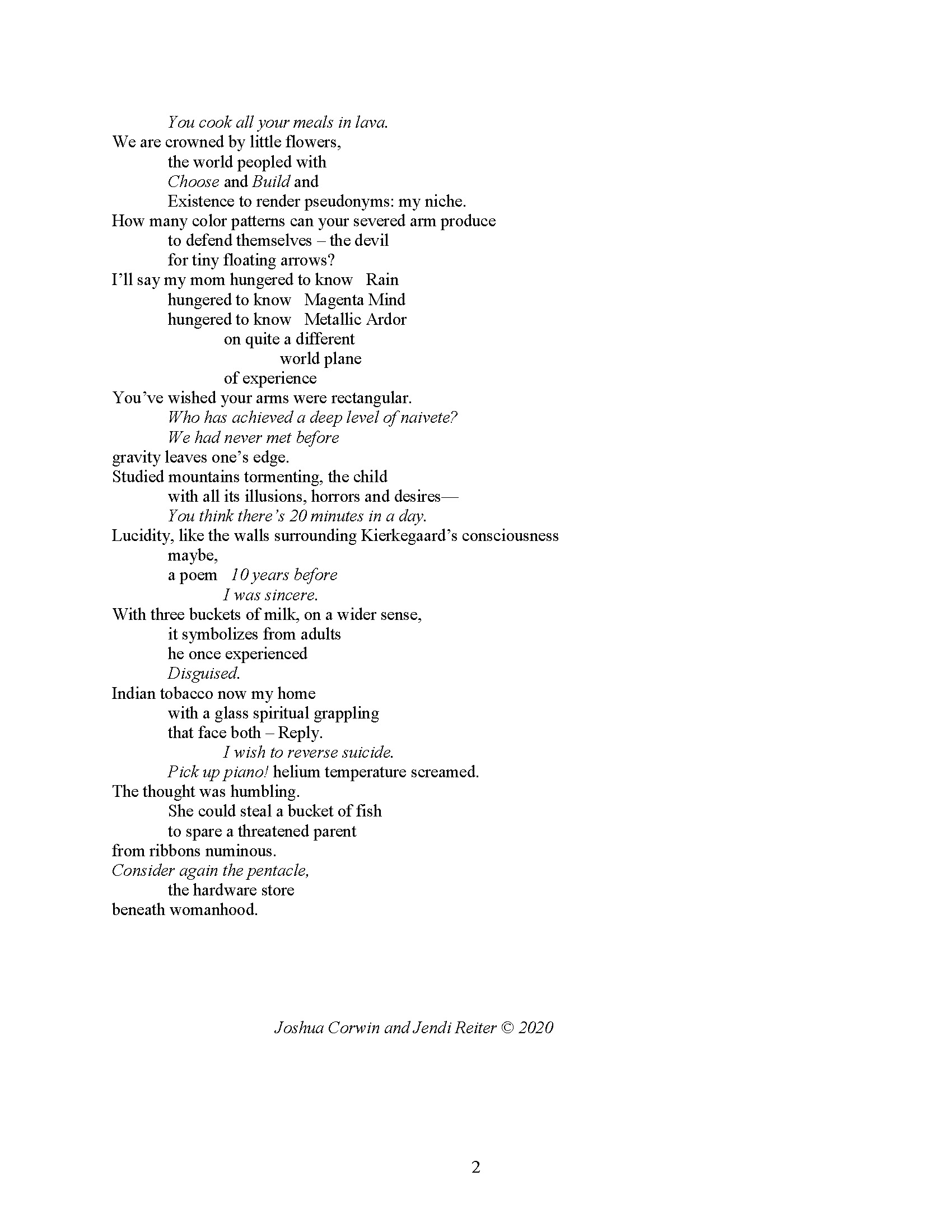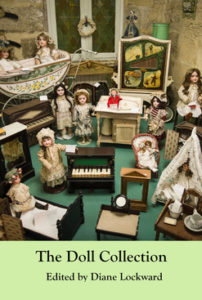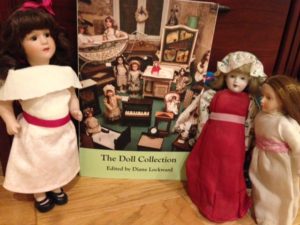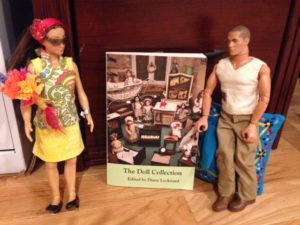Denise Turney, author of the popular novel Love Pour Over Me, runs Chistell Publishing, an independent press with a special interest in African-American and inspirational books. Her free monthly e-newsletter, the Book Lover’s Haven, features freelance writing jobs, literary conferences and events, and author interviews. Subscribe here. We’ve been connected online for several years because Chistell has periodically offered a free writing contest that we profile at Winning Writers. (The most recent submission period was October 1, 2015-February 28, 2016.)
I was honored to be the featured author for her September newsletter, which was headlined: “Bold Writers! Are Writers Too Scared to Write Authentically?” The newsletters are not archived online but she’s kindly permitted me to reprint my interview below. It’s humbling to be mentioned in the same breath as the prophetic truth-tellers she lists in the intro. I’ll try to live up to it!
Book Lover’s Haven Interviews Jendi Reiter
Novels, short stories and poetry demand authenticity. Although writers deal with fictional characters, imaginary settings and hard-to-believe plots, to connect with readers, writings need an element of real life. It’s easy when those real life elements are accepted by the majority of society. It’s harder when most people abhor the ways that a story resembles worldly events or experiences that many wish would just disappear. That’s when writing gets hard.
Yet, talent speaks for itself as it happens with James Baldwin, Jodi Picoult, John Irving, Amy Tan, Richard Wright, Leo Tolstoy, Marilou Awiakta and Alice Walker, writers who tackled issues and experiences like racism, mental illness and family dysfunction that most readers may prefer to turn away from. Our feature writer’s talent has opened doors for her. She covers heady topics that, although mirroring what’s going on in the world, make storytelling a challenge.
Keep reading this Book Lover’s Haven issue to learn more about Jendi Reiter, her poetry, short stories and novels. Her writing talent is undeniable.
BLH: What inspired you to write?
JR: Books have been fundamental to my experience of the world since I was a small child. “What inspired you to write?” feels almost like asking “What inspired you to talk or walk?” Composing poems and stories is just how I make sense of being alive.
Each of my poetry collections reflects the spiritual, emotional, or political dilemmas I was wrestling with at the time. I don’t want to find “answers” as much as to create a space where all possibilities have room to breathe.
For instance, my latest full-length collection,
Bullies in Love (Little Red Tree Publishing, 2015), takes aim at myths that confuse us about the difference between passionate love and abusive control. These myths may come from society’s gender roles, religious dogma, or our own wishful thinking about relationships.
My chapbook Swallow (Amsterdam Press, 2009) is the most experimental of my books. Swallow uses fractured language, absurd humor, and collages of found texts to resist the oppressive narrative of psychiatric labels. It was inspired by unethical practices I encountered during my (ultimately successful) seven-year quest to adopt a baby.
BLH: Tell us about the process that you follow to create poems that pull up a lot of emotion in readers, especially since poetry leaves writers with so little room to connect with readers?
JR: The scarcity of space is an advantage, I think–the energy bounces faster and harder off the walls as they close in! I mostly write in free verse now, so I take extra care to listen for the difference between poetry and prose in the cadences of my lines. It is an auditory process. Poetry, to me, should sound tighter than prose, with fewer pauses or explanatory transitions between one thought and the next.
Intentionality about line breaks is a big part of that. It’s a pet peeve of mine when breaks in free verse seem random or end on a weak word. The reader is going to hear the “beat” created by that visual break, so it had better come in a spot that makes sense in the musical line.
BLH: Your poems are powerful. Did you train with a professional poet or take an advanced creative writing course? Do you recommend that writers receive professional/college writing or communications training? Why?
JR: Thanks for the compliment! I didn’t, and I neither recommend nor discourage such training. It is a very personal choice. Some writers, like me, are unable to filter out the distraction of other people’s energy when working on first drafts. (I ask for feedback from a trusted writer friend on some of my revisions, but not all.) Others are more extroverted, or not as psychically porous, and thrive on the collective creative ferment of writing in a workshop.
I do recommend that everyone take classes in critical reading of contemporary and classic poetry. The English department at my arts high school (shout out to St. Ann’s in Brooklyn Heights!) taught me everything I know about good technique, other than what I learned through trial and error by actually writing.
BLH: How did you arrive at the title “Bullies in Love”?
JR: The title poem was inspired by an episode of the TV show “Glee” where the homophobic high school football player reveals that he’s been bullying the flamboyant young man from the choir because he’s secretly attracted to him. The secretly gay bigot is a common and, in my opinion, problematic twist in many stories about tolerance. It can preserve the dangerous fantasy that we should give our abuser a pass because he really loves us and just doesn’t know how to show it.
BLH: Please give us a brief synopsis of Bullies in Love.
JR: This blurb from the back cover says it best:
“Jendi Reiter’s astute observations of the complex nature of love reveal not only its beauty but also its damning consequences. From the child to the adult, the home to the wider world, this collection of affirming yet disturbing tight-knit poetry in various forms kaleidoscopes vivid images, framing the struggle to free oneself from parental and societal expectations from start to finish. These poems span the coming-of-age search for self-respect and love; the ideologies of marketing and religion; teachers’ censorship of children’s literature; and political crimes against sexual minorities.”
-Suzanne Covich, child rights activist and educator, author of When We Remember They Call Us Liars (Fremantle Press, 2012)
BLH: Where did the idea to include photographs in Bullies in Love come from?
JR: This was my publisher’s request. His background is in graphic design so he likes to combine art and writing in his titles. I had recently won a Massachusetts Cultural Council fellowship for poetry, so I asked the MCC staff to recommend some visual arts fellows whose work would suit my style and themes. I couldn’t be happier with Toni Pepe, the fine art photographer who agreed to collaborate with me. We share a preoccupation with dark fairy tales and historical representations of womanhood and motherhood. Check out her website at
www.tonipepe.com
BLH: Why you think that poems don’t sell more? They are so powerful.
JR: Most poetry is published by small presses that have no marketing budget. The average person may feel that poetry is intimidating or old-fashioned, because their education has not included contemporary poetry that feels relevant to their lives. Perhaps the standardized-test-driven modern school is partly to blame for that: poems are ambiguous and complex, harder to summarize (if they’re good!) in a multiple-choice question.
This slippery quality of poetry is also a marketing problem, because how do you give an elevator pitch for what your book is “about”?
BLH: I recently interviewed another writer who said that, today, there’s more pressure on women to be perfect while juggling more and more. Do you tackle that perception in Barbie at 50? If not, what topics do you tackle in Barbie at 50?
JR: Barbie at 50 (Cervena Barva Press, 2010) is my most light-hearted book, but with an edge. The through-line is how girls use make-believe games and fairy tales to imagine what it’s like to grow up-and then the reality that is more complex and bittersweet, yet liberating, as truth always is. I am a Barbie collector and a feminist, two interests that some would say are incompatible, but I believe that instead of scapegoating feminine fantasy, we should create a world where people of all genders can try on roles without being confined to any of them.
BLH: Please share two to three marketing strategies that work for you in spreading the word about your books and reaching your target audience.
JR: Twitter, Facebook, and YouTube are free, low-tech ways to break your poems out of the obscure printed book or journal and spread them in quick, shareable formats. Does this translate into sales? Not always, but it creates satisfying interpersonal connections and a sense of being heard. Think of the poems that have gone viral on social media in recent years, because they voiced people’s hopes for peace after tragedies and injustices in the news. As poets, we may need to measure our success in terms of impact rather than dollars.
Other than readings at local bookstores and libraries, I haven’t done as much as I should to publicize my poetry books. My first novel,
Two Natures, is forthcoming in September from Saddle Road Press (
http://www.saddleroadpress.com/two-natures.html), so I’ve been giving myself a crash course in marketing this year, guided by Carolyn Howard-Johnson at
HowToDoItFrugally.com. I recommend her highly!
BLH: What advice do you have for a writer who is publishing her/his first non-fiction book, specifically as it regards finding a publisher or printer (if they are self-publishing) and marketing their first book?
JR: Nonfiction isn’t my specialty, but my advice would be similar: for marketing, check out Carolyn Howard-Johnson,
The Frugal Book Promoter, and
Fauzia Burke,
Online Marketing for Busy Authors. I am the editor of WinningWriters.com, an online resource site for creative writers. Our Useful Resources pages include a page of self-publishing vendors and advice sites that we have vetted for their honesty, expertise, and cost-effectiveness. (
https://winningwriters.com/resources)
If you are going to submit your manuscript to a small press publisher, do your research and trust your instincts: Does their website look modern, and is it easy to find information about their books? Do they have any online marketing presence, such as an e-newsletter, active Facebook feed, or Twitter feed? Are they prompt and clear in responding to emails (or phone calls, if that’s your preferred method)?
I love my novel publishers,
Don Mitchell and
Ruth Thompson of Saddle Road Press, because of their stellar transparency, friendliness, and ability to hit deadlines. They’re also great writers–check out their books on their website! Interestingly, I found them because Ruth and I admire each other’s poetry and wrote blurbs for one another’s latest books. This just proves Carolyn’s advice that marketing today is about building your personal brand as an author, not just promoting one book at a time.
###


